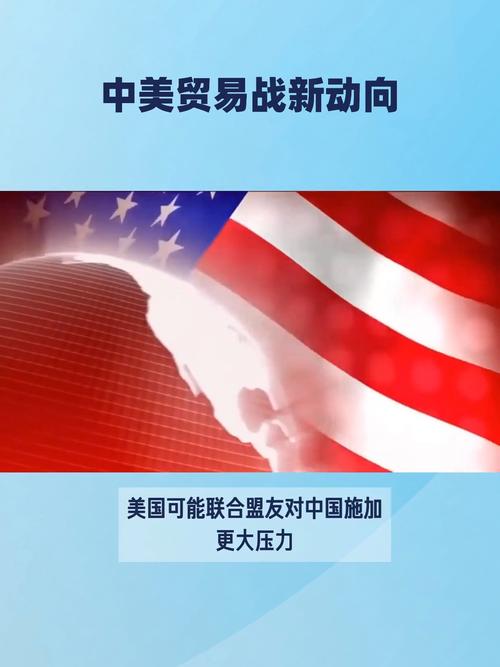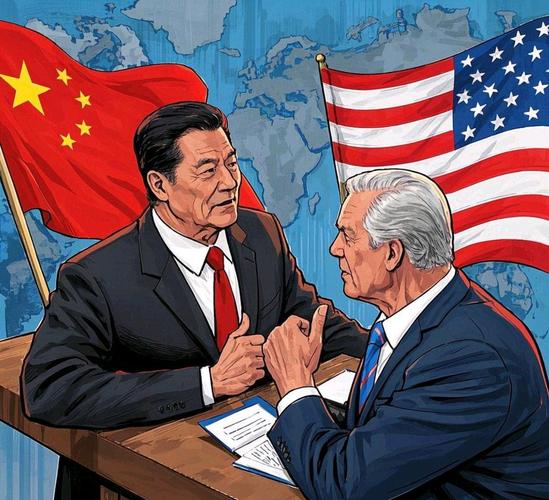As diplomatic officials from China and the United States negotiated on key national affairs, they chose hamburgers as a catering. What kind of economic competition pattern does this method of restricting diet reveal? Let us analyze the truth behind this phenomenon in depth.
A tense start
Members of the delegations of China and the United States are having a significant meeting in Lancaster Palace, London, the capital of the United Kingdom. Since the meeting, the two sides have conducted in-depth exchanges, covering a wide range of issues, including semiconductor export control measures and approval of rare earth export licenses. The documents and materials on the conference table are piled up, and their thickness is even greater than that of ordinary takeaway lunch boxes. As lunch time approaches, US Treasury Secretary Bescent is starting to select dishes. At the same time, Chinese representative Vice Premier He Lifeng decisively proposed to continue discussions, which immediately made the atmosphere at the negotiation site tense.
Confrontation at the takeaway table

After the meal, representatives of both parties held takeaway packaging bags and the dialogue continued. While dismantling the roasted chicken rolls, U.S. Commerce Secretary Lutnik discussed the issue of restrictions on ethane exports; during this period, Chinese Vice Minister Li Chenggang gave different views on the ban on AI chips while enjoying salad. British security personnel couldn’t help but sigh that the collision of tableware on the negotiating table seemed to reveal the truth more than diplomatic rhetoric. The United States is facing challenges brought by rare earth control, and at the same time, China released data on its export performance, a move that made the atmosphere tense and intense.
Internal discrimination between the United States
During the negotiations, core members of the US delegation held a heated discussion. Finance Minister Bescent proposed that the lifting of technology will be used as a condition for the exchange of access to rare earth resources. Meanwhile, Trade Representative Greer insisted on raising tariffs. Commerce Minister Lutnik proposed the strategy of “sacrificing in the short term in exchange for long-term victory.” This scene reminds people of the chaos that occurred during the U.S.-Japan negotiations in May, when the debate between the three representatives led to the stagnation of the negotiation process. At this critical moment, Chinese Vice Premier He Lifeng seized the opportunity and emphasized to the US the necessity of reaching a consensus at the policy level.
The core of the game
US Secretary of Commerce Lutnik responded to the impact of GM and other companies due to my country’s rare earth control policies and proposed the so-called “bargaining list”. This list is intended to relax export controls on 14-nanometer chip manufacturing equipment in order to promote my country to lift export restrictions on seven rare earth elements such as dysprosium and terbium. My representative then presented relevant data to refute and emphasized that practical measures will be taken to support the United States. At this stage, AI chips produced in the United States continue to be subject to export bans. This phenomenon further exposes the increasingly fierce competition between the semiconductor industry and the field of rare earth resource development.
Unexpected results

During the two consecutive days of meetings, participants in the Lutnik venue unexpectedly announced the signing of a framework agreement while enjoying a cold sandwich. At the same time, China has taken a highly-watched measure to limit the validity period of the rare earth export license to August 12, which is exactly the same as the deadline for the 90-day tariff truce. This behavior suggests that if the United States expects to maintain supply chain stability, it must reach a formal agreement with China by the end of the month.
Ending and meaning
In the trash cans at Lancaster Palace, the cleaners discarded the takeaway bags, a move that reflected some subtle changes in historical development. The cooled burger wreck ruthlessly reveals the legend that “U.S. sanctions turn the tide.” Trump’s lament of “China is difficult to tame” has just become the most intuitive portrayal of the changes in the century of historical changes. This negotiation fully demonstrates our country’s wisdom and strength in diplomacy and economic competition. Dear readers, what do you think about the subsequent impact of the two countries’ economic exchanges that may be triggered by this bilateral talks? Please like and forward it in time, and talk about your views in the comment area.
Leave a Reply